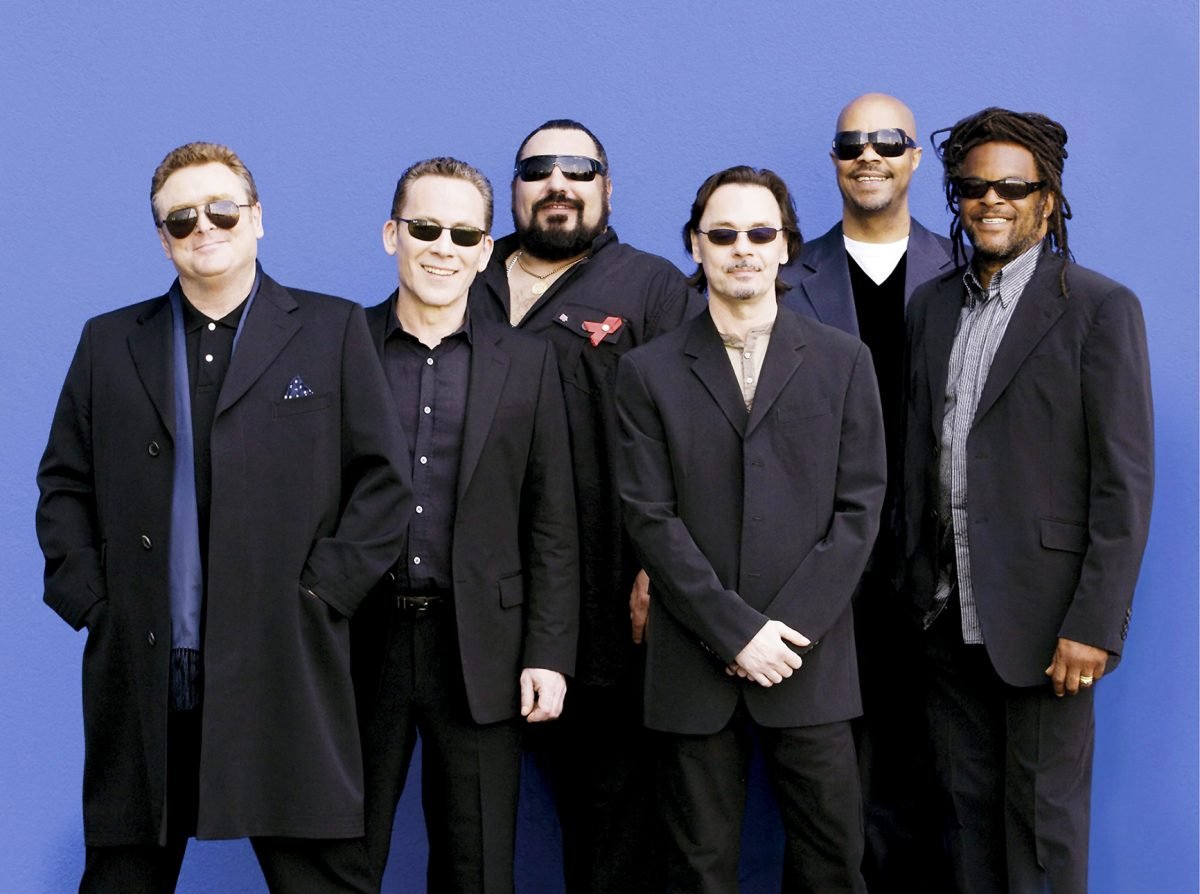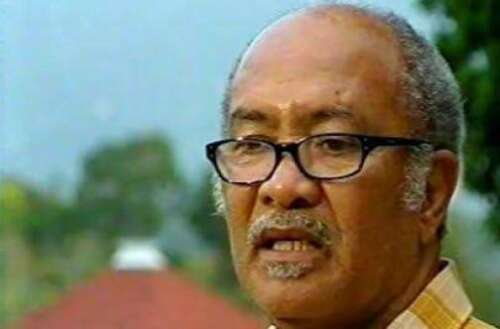UB40’s Cover Of Lord Creator’s ‘Kingston Town’ Certified Platinum In The UK

UB40’s cover version of Lord Creator’s 1970 song Kingston Town has been certified Platinum by the British Phonographic Industry (BPI), the trade body representing the UK’s recorded music industry.
The song, which the Grammy-nominated British Reggae band covered in 1989, was officially certified platinum on Friday, March 17, after it sold over 600,000 units in the UK, as measured by The Official Charts Company.
Lord Creator, a veteran Ska, Rocksteady and Calypso singer, had recorded Kingston Town for producer Clancy Eccles on his Clandisc record label in late 1969.
UB40 covered the song as the second single from the band’s Labour of Love II album. It ascended to No. 4 on the UK Singles Chart, and went on to top the charts in France and The Netherlands.
Formed in Birmingham in December 1978, UB40 had more than 50 singles in the UK Singles Chart. With over 100 million albums sold worldwide, the band is considered one of the most decorated and successful Reggae groups ever.
UB40’s successes have been predicated on recording albums containing cover versions of older Reggae songs, many of which were composed by newcomers to Jamaica’s music industry.
Kingston Town was among several Jamaican songs for which UB40 ensured song-writing royalties went to the author, among them Lord Creator, after finding out that many of the island’s artists were being exploited by music producers, who would claim all the royalties and proceeds on the recordings, while the singers remained penniless.
Over the decades, UB40 has tracked down the originators of these songs and registered them with PRS, the major royalty collection agency in the UK.
Lord Creator, who was born in Trinidad, migrated to Jamaica in the 1960s after he started doing Ska and Rocksteady music and gained national attention after releasing the song Independent, which celebrated Jamaica’s independence from Britain in 1962. Hailed as one ska’s pioneers, he is also known for hits such as Don’t Stay Out Late, Big Bamboo, Little Princess and Jamaica Farewell.
The singer, who resides with his wife in Golden Grove, received the Order of Distinction (Officer Rank) from the Jamaican Government, for his “contribution to the development of Jamaican music and community service,” On National Heroes Day last year.

Creator, whose given name is Kenrick Patrick, was born in San Fernando, Trinidad on August 21, 1935.
Kingston Town
According to a May 2016 Gleaner article, Kingston Town was initially a song called Babylon which was written by Lord Creator while in Trinidad, recorded in 1963, and then reappeared in 1969 with the new title, Kingston Town.
The song, however, became the subject of controversy between Lord Creator and Clancy Eccles over ownership of the song after UB-40’s version sold millions in Europe, “generating enormous royalties to the writer of the song.”
According to the author, Lord Creator, who was struggling financially in Jamaica, after 22 years had returned to his homeland, Trinidad, “almost against his will in 1984”.
It was there that after suffering a stroke which saw him being hospitalised for 19 days, Creator got the news that UB-40, after being given permission by him to record Kingston Town, had “made it into a big hit all over Europe by 1989, and generated enormous royalties for the composer of the song”.
The following year, Lord Creator returned to Jamaica and built houses for himself and his children, “and out of goodwill”, gave Clancy $250,000 “but when he returned for more, I refused and contacted my lawyers,” the article stated.
According to the article, in an interview, the now-deceased Eccles had claimed that “fifty per cent of the record is owned by me, because I wrote some of the words. I made the music for this particular song, and I don’t get a penny royalty yet”, while Lord Creator had claimed he wrote the entire song, and that the publishers came to that decision after extensive investigations.
Lord Creator had also said Kingston Town was an interpolation of Babylon, which he had composed as a teenager in Trinidad and later recorded for Randys, back in 1963, on a Ska beat.
He explained said that while performing in Montego Bay at a club, Clancy Eccles, had asked him to record a song for him which resulted in the track Molly Is A Big Girl Now, and that Clancy was so “fascinated” that he had asked for “another one to put on the flip side”.
Lord Creator said that as a result, he inserted the words Kingston Town and removed the word “Babylon” and reworked the track. “Clancy had nothing to do with my song, and if you listen to the lyrics of both recordings, you’ll realise they are exactly the same, except for Kingston Town replacing ‘Babylon,’” he pointed out.
Lord Creator added that Clancy had further pursued the matter, claiming that he bought the recording from him for 30 pounds in late 1969, a notion he had rubbished, pointing out that it could not be the case as by late 1969, Jamaica’s currency had changed to dollars and cents.
The singer said, though, that Eccles had paid him $30 for doing the recording for him, but insisted that he did not enter into any contract for sale of the recording.
Kingston Town is the second UB40 song to gain platinum accolades in less than one year.
Last June, the chart-topping single Red Red Wine was certified double-platinum by the BPI, after selling more than 1.2 million units in the UK, as measured by The Official Charts Company.
The song, a cover version of Neil Diamond’s 1967 original, was the Birmingham-based group’s first chart-topper in the United States. It went to number one on the Billboard Hot 100 in October 1988, and became one of the biggest Reggae songs in history, five years after it was released in 1983.
(I Can’t Help) Falling In Love With You , a 1993 cover of American singer Elvis Presley’s 1961 original, is also certified Platinum in the UK, after selling more than 600,000 units.
I Got You Babe, a 1985 cover of American duo Sonny & Cher’s 1965 original, is currently certified Gold in the UK, after selling more than 400,000 units.
